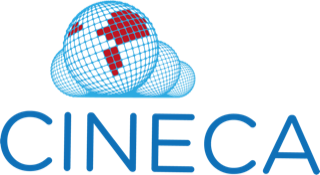Date: 10th November 2022
Time: 16:00-17:00 CET
Slides: Modular and reproducible workflows for federated molecular QTL analysis
Contact: Marta Lloret Llinares, Mamana Mbiyavanga
Overview
Genetic analysis of molecular traits such as gene expression, splicing and chromatin accessibility requires a number of complex analysis steps that can easily take weeks or months for a analyst to implement from scratch. In the CINECA project, we have developed a number of modular Nextflow workflows that standardise and automate these steps. In this webinar, we will give an overview of the CINECA workflows for genotype imputation, gene expression and splicing quantification, data normalisation and association testing, and demonstrate how these workflows can be used in a federated setting without transferring identifiable personal data between partners.
Target audience
Computational biologists working on molecular QTL analysis
Format
Public webinar
About the speaker
Kaur Alasoo is a Lecturer of Bioinformatics at the University of Tartu. His research is focussed on genetic analysis of diverse molecular traits and building data resources to facilitate secondary use of molecular QTL datasets. Kaur is also a co-lead of the eQTL Catalogue project.
About CINECA
The CINECA (Common Infrastructure for National Cohorts in Europe, Canada, and Africa) project aims to develop a federated cloud enabled infrastructure to make population scale genomic and biomolecular data accessible across international borders, to accelerate research, and improve the health of individuals across continents. CINECA will leverage international investment in human cohort studies from Europe, Canada, and Africa to deliver a paradigm shift of federated research and clinical applications. The CINECA consortium will create one of the largest cross-continental implementations of human genetic and phenotypic data federation and interoperability with a focus on common (complex) disease, one of the world’s most significant health burdens. CINECA has assembled a virtual cohort of 1.4M individuals from population, longitudinal and disease studies. Federated analyses will deliver new scientific knowledge, harmonisation strategies and the necessary ELSI framework supporting data exchange across legal jurisdictions enabling federated analyses in the cloud. CINECA will provide a template to achieve virtual longitudinal and disease specific cohorts of millions of samples, to advance benefits to patients. It will leverage partner membership of standards and infrastructures like the Global Alliance for Global Health, BBMRI, ELIXIR, and EOSC driving the state of the art in standards development, technical implementation and FAIR data.


